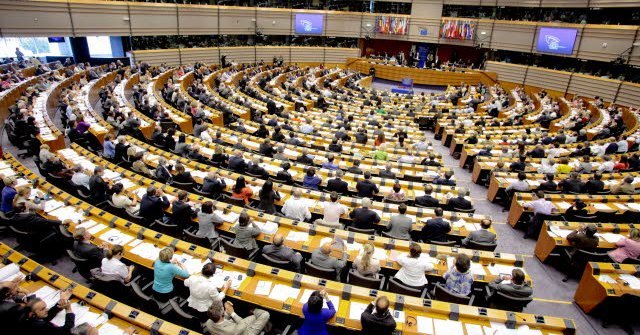I have enough of it and decide to leave Berlin. Berlin, the very hectic heart of a policy, which - as critics from all directions say – would drive apart the continent. I spent the summer on a language course in Poland, organized by a German-Polish student organization for cultural exchange. In the middle of the Polish province, one hour away from Toruń, we come together to teach each other the respective mother tongue. Soon we break down the barriers between. Wodka plays certainly a role. But also in workshops and other events we learn that we have more in common than there a differences.
In the Polish forests the time moves comfortably slowly: the dramatic downbreaking of the stock prices caused by the American budgetary dispute appears to be harmless in the rural peace. The danger that there is another impact on the real economy’s recovery seems to be somehow far away and vague. The crisis of the Euro could be a just a bad dream, here.
Another reason could be that Poland is in quite a good condition right now. The economy grows with stability. Right after the border of Frankfurt/Oder you can see that the country wants to go forward. My new friends ask me proudly what my opinion is about the new polski autostrada. You can also hear critical voices about the current government, about problems regarding the infrastructural programs. However, you feel a broad atmosphere of departure. Last Sunday the current government under Donald Tusk has won with his platform obywatelska the elections. For the very first time the citizens in Republic of Poland reconfirmed a government for a second legislative period. The PO gives the Polish people their very own hope of climbing the social ladder. The democracy is stabilized and Poland has arrived in Europe long ago before taking on the European Presidency this year. In fact, some say that Poland is the most proeuropean country in Europe right now.
Some of my new friends are political. They perceive the crisis of the Euro, but don’t really understand it. They think it is a positive thing, that Poland still has got the zŁoty. Diffuse imagines are in their heads: “In any way France and Germany are in control of everything”, is the common negative tone. MichaeŁ, a open-minded and warm hearted law student from Warsaw, even thinks that Germany takes over Greece right now. I try to explain the German position, saying that it is not so clear. Though Germany tries to bring those countries to a course of austerity and stability, having their own interests, the control of the money is by far not that easy. Those countries still have their sovereignty in those questions. And even if, I ask rhetorically, maybe it is in the interest of the Greek people that their economic policy becomes more “European” and thus also more “German”? Some of my audience seems to agree. However, that Poland would give up sovereignty regarding a further integration of economic and even social policy questions seems to be unthinkable for them.
And to be frankly: Who can dare to question that? After thousands of years of cruel heteronomy, those countries have gain back their autonomy not until 1989. Their national thinking cannot simply be swiped away with a sponge of rational arguments. A federal vision of a true financial and economic policy hold in the hands of the commission and controlled by the European Parliament can therefore not become reality tomorrow. Or at least we have to accept that there are arguments for Merkel and Sarkozy rather half-empty phrases of the “European economic government” or the “Euro-Plus-Pact”. That does not mean that we cannot hold up the supranational method. It is quite severe, that the governments increasingly action outside the treaties. However, we have to discuss how to manage a Europe with different speeds the best. Can a separation of the European Parliament, that means a Euro-Parliament, really be the solution?
The weeks in the Polish forests are moving away smoothly and teach to keep things in perspective. The Polish optimism is better than the panic on the financial markets. Europe is not at crossroads and Europe will not fall together, I say with confidence. We will find solutions for the debt crisis and the crisis will be bring the continent further together, I am thinking and raise my glass of wodka: Za Europę!


Follow the comments: |
|
